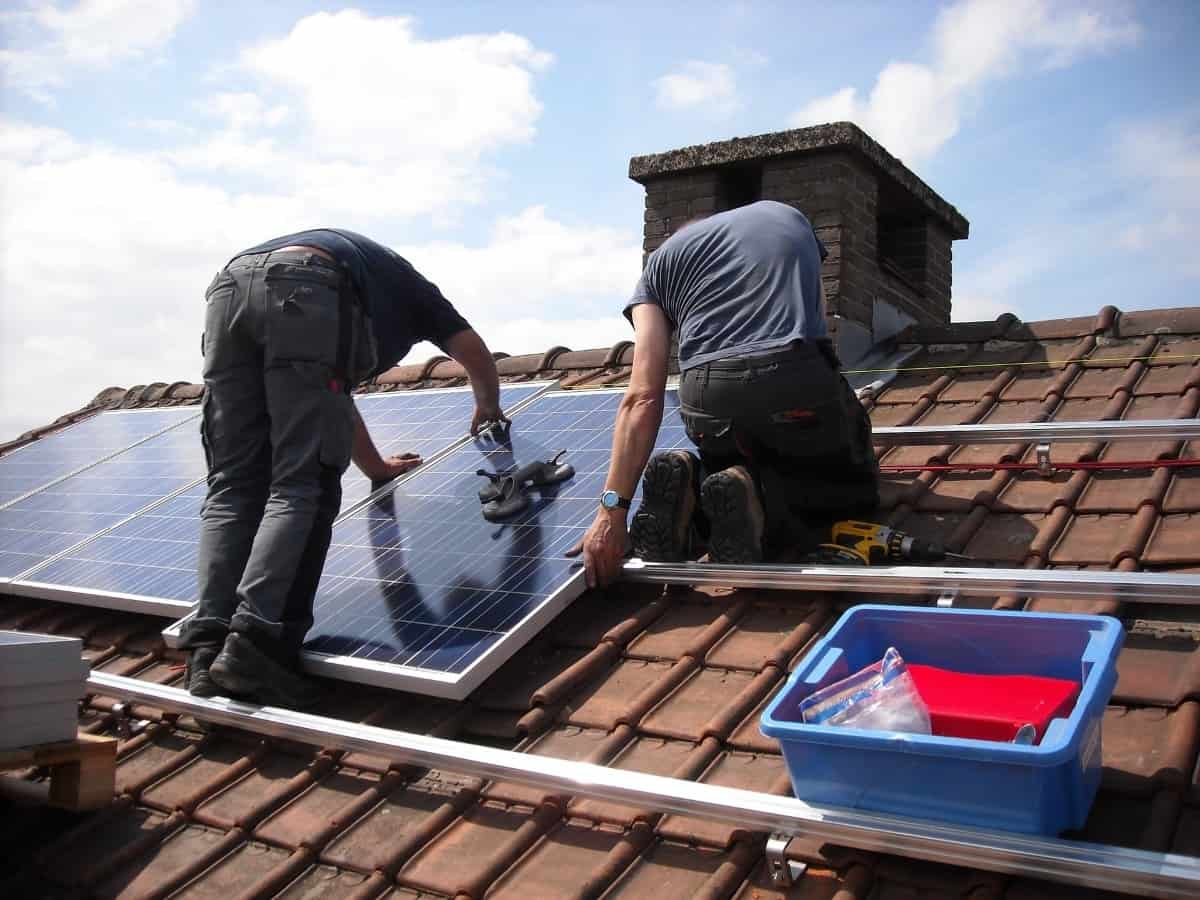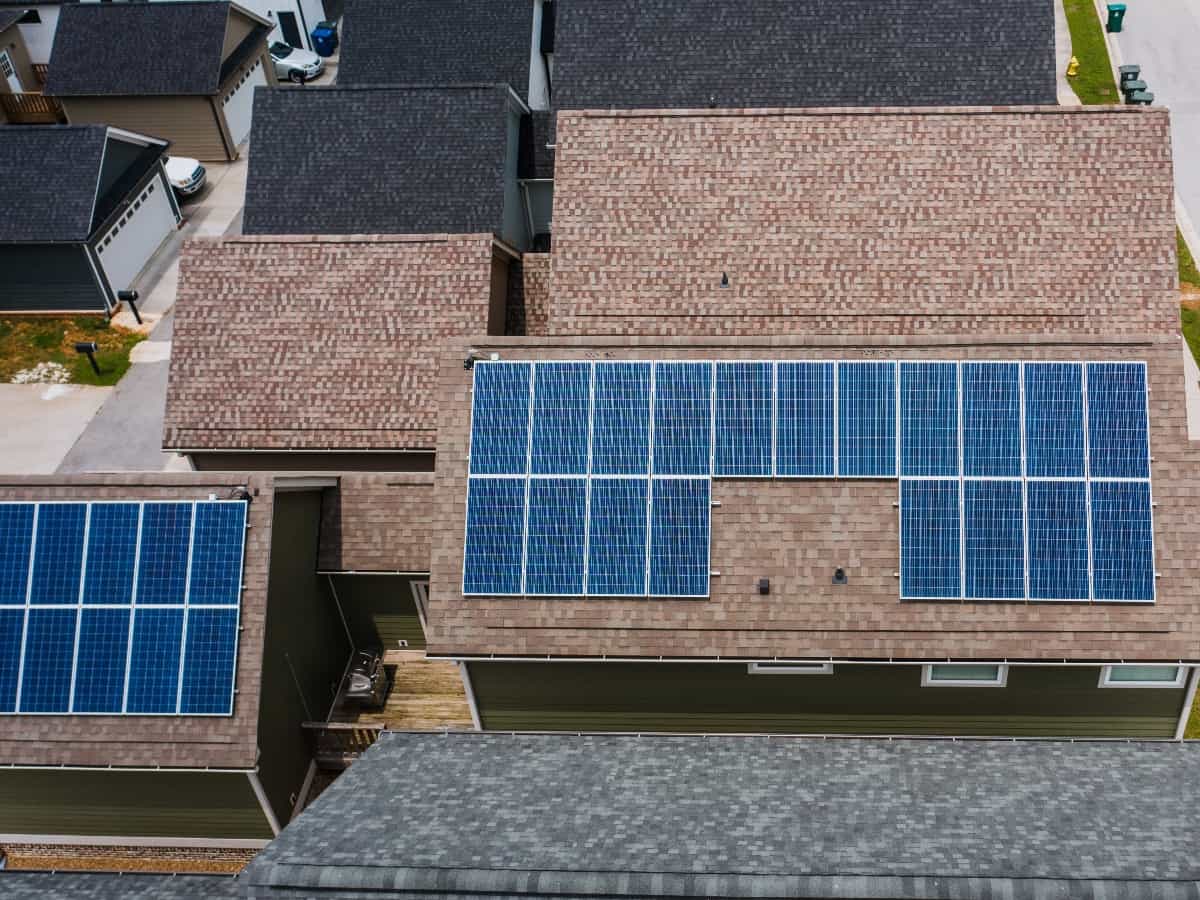Thousands of homeowners have turned to solar for their energy needs. Solar panels help homeowners realize the benefits of lower energy consumption as their property value increases. Solar panel insurance is worth it if you live in a state that experiences extreme weather conditions such as hail, hurricanes, and blizzards. Due to this, solar owners no longer need to be concerned if their panels will hold up during a storm.
Why Solar Panel Insurance is Necessary
Rooftop tiles or panels are a permanent attachment to the home, such as a security system, and are considered a home improvement. The homeowner’s insurance policy, which is required when there is a mortgage on the property, covers the solar energy system. A separate rider is not needed for damage incurred if covered by the policy.

What Will Solar Panel Insurance Cover?
Insurance covers solar panel repairs or a new system if damaged by a fallen tree, hail, fire, wind, or a lightning strike. Meeting your deductible is necessary before a payout from the insurance company.
The coverage you had before installing a solar panel system may not be enough to cover replacement or repair costs in the event you need to file a claim. Based on statistics from the Center for Sustainable Energy, an installed rooftop solar system before taxes, averages between $15,000 and $25,000. That is a significant investment in your home even after applying the 26% federal tax credit.
For most homeowners, a replacement of this size could result in a huge financial burden, making solar panel insurance necessary. Being able to have insurance with this investment against damage from a storm or other catastrophic event could help determine if you choose to add solar panels to your home.
Is There a Claim Limit?
Another point regarding solar panel insurance is there may be no claim limit, which is the maximum amount paid out for a particular loss covered by your insurance policy. This differs from structures not attached to the home, such as a gazebo or storage shed. Once you have met your deductible, the total replacement cost of the panels is guaranteed.
That is a huge positive for homeowners using solar energy. Make sure to verify the terms of your policy to confirm there is enough coverage to pay for replacement or repairs of both the home and the solar panels. Remember, you must pay the deductible amount before coverage goes into effect. The insurance professionals at ONIT Home can discuss your coverage limits.

Let’s Talk About the Benefits of Solar Energy
- Solar power is pollution-free.
- Reduced dependence on fossil fuels and foreign oil
- Renewable clean power available 24/7
- Return on investment, unlike utility bills
- Maintenance-free
- Long-lasting over 30 years
- No greenhouse gas emissions after installation
- Cloudy days produce power
- Power companies can repurchase excess power
- Gives homeowners the ability to live grid free
- Potentially installed anywhere
- Use batteries at night for extra power
- Use solar energy to power homes and commercial buildings, heat water, and power cars
- Much safer than traditional electricity
- Products are always improving, so the same size solar energy system today will be more efficient tomorrow.
- Aesthetics continue to improve, making the systems more versatile.
- Job creation
- Rebate programs, tax incentives, and federal grants are available to homeowners to help with start-up costs.
Is Solar Covered on Homeowners Insurance?
Homeowner’s insurance policies cover most solar panel systems, but not all. A supplemental insurance policy for solar carports or ground-mounted solar panels can protect your investment. The supplemental insurance policy will pick up where the homeowner’s insurance left off.
Your insurance agent can discuss options and whether your existing policy will protect the solar panels. Again, panels mounted to the roof of your home are considered part of the house and covered by your current policy. However, the panels may not be covered if installed on a storage shed or some other out-building.
Standard homeowners’ insurance policies usually do not cover earthquakes and floods. Most insurance companies will provide an add-on to provide coverage as well. In some states prone to hurricanes, a standard home insurance policy will not include coverage for wind damage.

It’s Crucial To Work With an Experienced Solar Panel Installer
Solar panel installation can damage your roof. Verify that the installation team doing the work is experienced and licensed. If not, your homeowner’s policy may not cover the damage. You will be forced to pay for the repairs out of pocket.
If your current homeowner’s insurance provider will not offer solar panel insurance, it is time to find a new carrier. Different insurance agents provide different types of homeowners insurance coverage. You will find possible cost savings with another carrier.
Knowing that solar panels make your home more efficient, your homeowner’s insurance premiums could decrease. Many insurance carriers offer discounts on monthly premiums if you make your home more eco-friendly. Adding solar power to your home will do just that.
Leased Solar Panels
In this case, you do not need to insure them because you do not own them. The solar contractor’s insurance will cover the replacement or repair of the solar panels. Compare purchasing terms with other solar installers in the event a company is suggesting you pay for the coverage. When the system is completely paid for, you will have insurance towards its value.
Solar Panel Endurance Testing
Due to rigorous testing in the industry, solar has become a reliable and renewable source of energy that homeowners and business owners across the nation can count on during extreme weather conditions. Top solar panel manufacturers have understood for many years the need for a product that can manage conditions such as hail and high winds. Most of the manufacturer’s tests certify that their panels can endure hail one inch in diameter falling at 50 mph.
Weather conditions such as hail, lightning, pressure from snow accumulation, ice, and other weather events can cause extensive damage to solar panels. Other damage due to broken tree branches, fire, animals, or excessive heat or cold can also occur.
What Can a Solar Panel Endure?
Solar panels are manufactured and certified to withstand winds at 140 mph. There are some municipalities and states that have their own rules regarding solar installations, especially where prone to hurricanes. Most Florida cities require solar panels to be able to withstand winds up to at least 160 mph.
Solar installations remain unaffected in the way they have held up to extreme weather as time has gone on. They have proven their resilience up and down the east coast in the face of recent hurricanes. While those homes and businesses using standard electricity could be without power for days and sometimes weeks, for those using solar energy it is business as usual.
An example of the quality testing that solar panels undergo is a severe hailstorm in Denver that caused considerable damage across the city. Golf ball-sized dents on car roofs and shattered car windows were the result. Out of 3,000 solar panels of one business in Denver, only one panel was broken.
If this business had solar panel insurance, it would be replaced at no cost to them. It is a wise idea to protect your assets against disaster. People’s most valuable asset is usually their home.

Confused About Solar? You’re Not Alone. Call ONIT Home to Understand This Sun-Powered Energy
When it comes to solar energy, there’s still a lot of questions out there! That’s why ONIT Home is here. Our dedicated staff are standing by to answer all of your solar questions. Whether it’s solar energy, insurance, security or water filtration, we’re ONIT. Call us right now at 1-833-433-0331 or visit us online to learn more.



